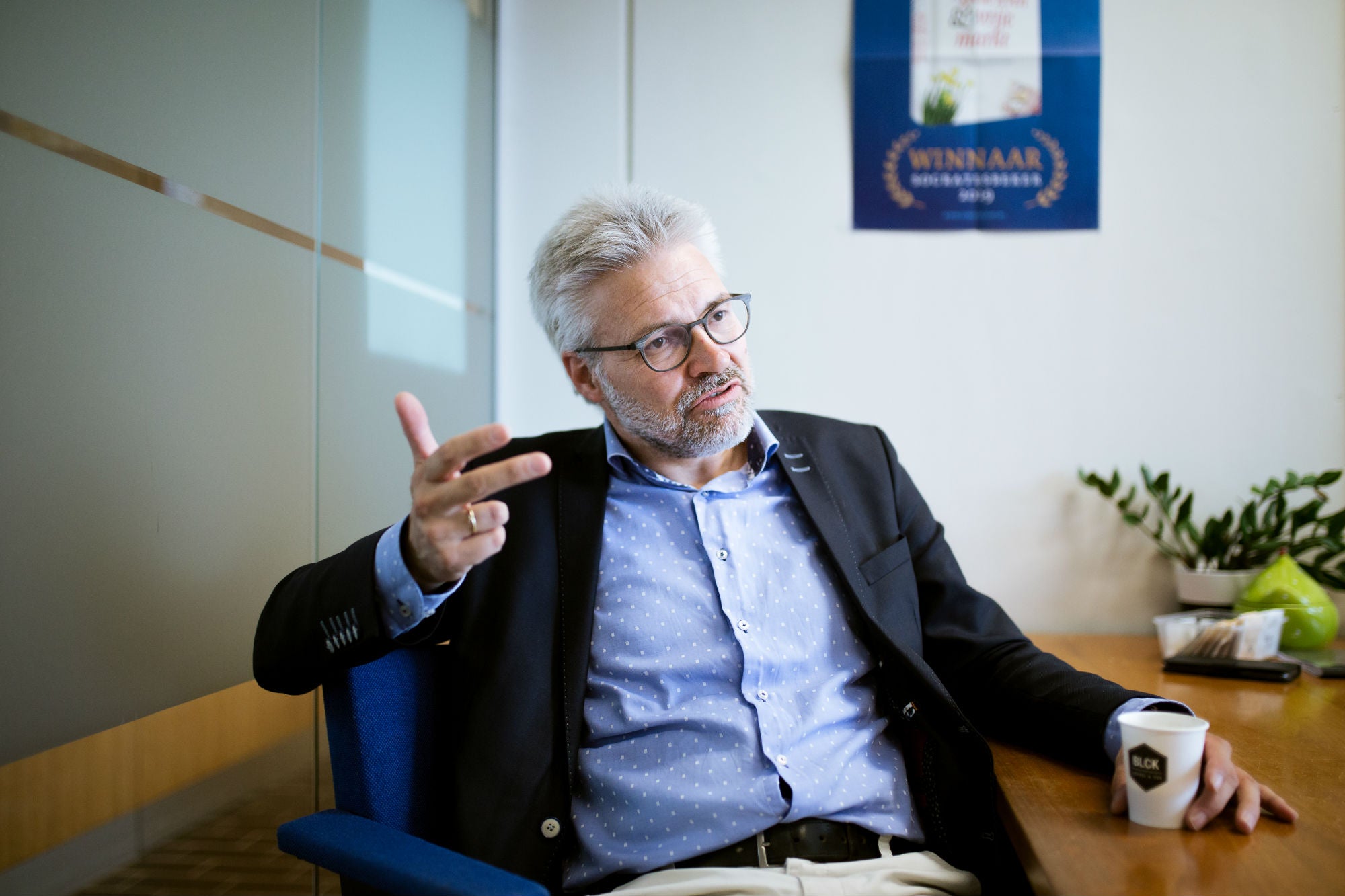Govert Buijs, professor of social and economic renewal, advocates for less education early in life and more room for retraining and career switches later in life.
Buijs: „In the current education system, people have to make a lot of important choices when they start out in life. Which subjects they want to take at high school and, later, what they want to study. Often that’s when they don’t yet know themselves very well. And once you’ve graduated, then you have to get on with it. Right now, there’s not enough support for changing your career later in life. I would prefer to see education running parallel with the course your life takes."
Do you believe that retraining and changing careers has grown in importance?
„We’re now living much longer and society is much more dynamic. In the past, professions and sectors were stable. In agriculture, the farm was often handed down from father to son. You were a carpenter or a builder your whole life long."
„These days, new professions crop up all the time. Take the IT revolution, for example. The internet has only become completely normal in the last 25 years or so. Professions are becoming computerised and made redundant because of digitalisation. Choosing one career for the whole of your life is a thing of the past. We have to structure society to make it easier to retrain during your lifetime. Not only upwards as a promotion in your job, but also sideways to another sector."
„For example, you could have a system of study entitlements, like a set of vouchers that allow you to take courses as you go along. Another obvious way forward would be to have a greater distinction between bachelor and master degrees. You would take a three-year basic degree, then you’d go out and work and then, after a few years, you’d go back and get your master’s. That would introduce practical experience into education, and the academic aspects would be introduced into practice. Personally, I have noticed how incredibly stimulating it is to teach people who have work experience as well as teach alongside them. Everyone stands to benefit."

So you think the ball is in the government’s court and it is not the responsibility of individuals?
„A true-blue libertarian would say: studying is an investment in yourself, so no student loan for you. Get one from the bank. Like the system in the States. I would say: give people a study grant, but then later, when they’re earning proportionately more, have them pay more taxes. In other words, we’re investing in you as a society, so if you benefit excessively from that later, then you should pay much more from what you earn."
Making it easier to retrain or learn additional skills means more prospective job candidates in what is currently a tight employment market. What does investing in personal development mean for employers?
„You can see what happens if the opportunities aren’t available. A lot of people are leaving key sectors, like education or healthcare, because there are not enough opportunities for growth. Working in another sector, where there are opportunities for advancement, becomes more attractive to people who feel they are in a rut. Many people who do make a career switch later in life start their own businesses."
„The implications of this growth in sole trader businesses are not good for society and the social security system. If twenty per cent of the population no longer contribute, then that has ramifications for society as a whole. And those who are self-employed often cost more – they demand more for the same amount of work. And the sole traders themselves? They are often very happy because they hold the reins: they are in charge. So as an employer you have to make sure that your staff feel as though they can advance in their careers. This will automatically stem the exit to self-employment."
What does retraining mean for a person’s job satisfaction?
„It gives someone more than just knowledge. People don’t get into ruts, they develop new aspects of themselves and gain greater job satisfaction. A key factor in this is that a study programme can result in a recognised degree. It marks a new milestone."
This year, the government is running a pilot study with so-called ‘STEP budgets’. It is a system of step-by-step grants of 1,000 euros a year for training and development for every Dutch citizen, designed to make access to the jobs market easier. What do you think of this?
„The STEP budget is a small step in the right direction. Apparently, the government has realised that lifelong education is important. But you can’t do much with that amount of money. One of the issues is that tuition fees for a second degree went up hugely several years ago. This really puts people off retraining. That should be done away with as quickly as possible."
Do you invest in your own development?
„Hmm. Not really. That said, I am constantly developing. I am fortunate enough to work in a setting where I am constantly acquiring new knowledge. Even at a university, people risk getting stuck in a specialism, but generally there is a lot of room to try something new. And speaking for myself – as a philosopher – I can get involved in a wide range of subjects. Thanks to that freedom, I do have a lot of pleasure in my work."
Got inspired by the interview with Govert Buijs, or were you already thinking about starting a study or course next year? VU Amsterdam offers numerous programmes, in all kinds of fields. Whether you want to obtain your MBA or attend an art history lecture out of personal interest.
SEE ALL OUR PROGRAMMES:
- VU for Professionals
- HOVO Amsterdam (in Dutch)








